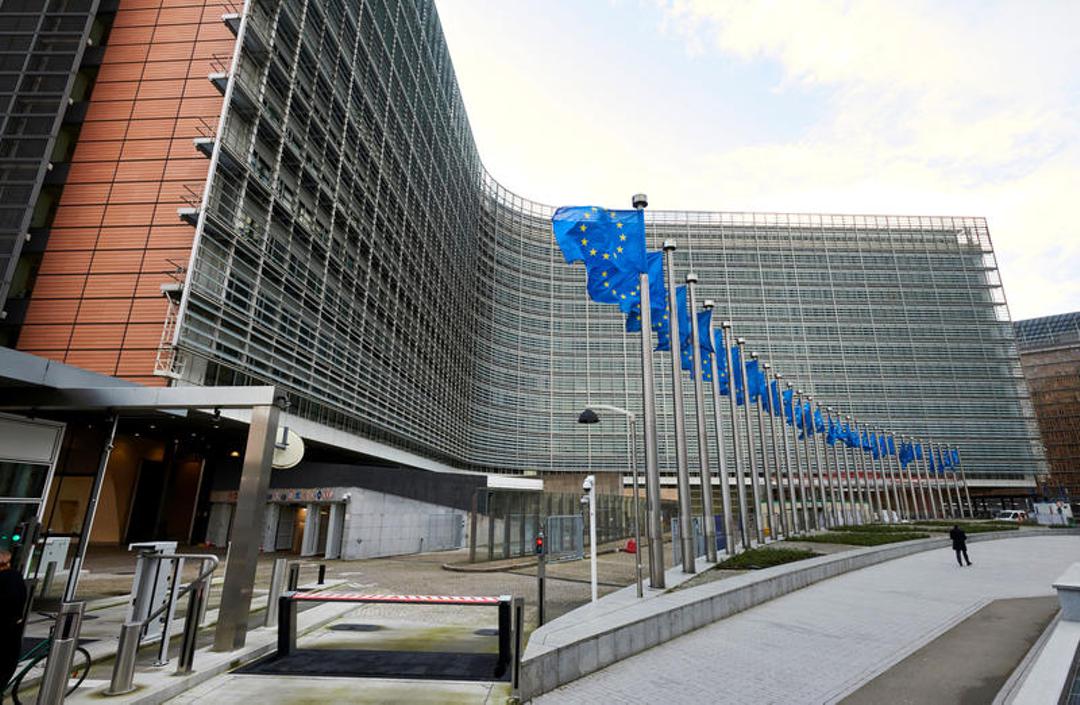EU Fines Apple and Meta $745 Million for Violating Digital Market Rules
Tech giants face penalties for anti-competitive practices under the Digital Markets Act.
Brussels – The European Commission has slapped apple and Meta with a combined fine of 700 million euros, approximately $745 million USD, for violating the digital Markets Act (DMA). The announcement, made Wednesday in Brussels, marks a significant step in the EU’s efforts to curb the market dominance of tech giants and promote fairer competition. Apple faces a penalty of 500 million euros, while Meta’s fine amounts to 200 million euros. Apple has already announced its intention to appeal the decision.
the Digital Markets Act,a landmark piece of legislation,aims to level the playing field in the digital economy by limiting the market power of large tech platforms. A key provision of the DMA prohibits companies from using user data for personalized advertising without explicit consent.
Apple’s App Store Restrictions Under Scrutiny
According to the European Commission, Apple’s violation of the DMA stems from its restrictions on app developers, preventing them from informing users about choice offers outside the apple App Store. The commission stated that Apple was unable to demonstrate that these restrictions are “objectively necessary and proportionate.” The EU Commission has instructed Apple to remove these technical and commercial limitations.
The restrictions on app developers have long been a point of contention. Companies like Spotify and Epic Games, the maker of Fortnite, have publicly criticized Apple’s App Store policies, arguing that the company’s control over the platform stifles innovation and harms consumers. In the U.S., similar concerns have fueled antitrust investigations and legal challenges against Apple.
Meta’s “Consent or Pay” Model Deemed Non-Compliant
The Commission also took issue with Meta’s “Consent Or Pay” advertising model, deeming it incompatible with the Digital markets Act. Under this model, introduced in 2023, users were given the choice of either consenting to the use of their personal data for targeted advertising or paying a subscription fee to avoid it.
Critics have argued that the “Consent or Pay” model forces users into a Hobson’s choice, effectively penalizing them for protecting their privacy. Data privacy advocates have long raised concerns about Meta’s data collection practices and the potential for abuse of user information. While Meta introduced a revised version of the model in November 2024,claiming that it uses less personal data for advertising,the Commission is still evaluating its compliance with the DMA. “The Commission is currently examining this new option,” it said.
The implications of the DMA extend beyond Europe. As the EU takes a firm stance on digital regulation, it could influence policy decisions in the United States and other countries. The debate over data privacy and market power in the tech industry is intensifying globally. Some states are even pioneering legislation to increase the data privacy of their residents.
Consequences and Potential Repercussions
Apple and Meta have been given 60 days to comply with the Commission’s decisions. Failure to do so could result in further penalties. The EU Commission warned that non-compliance could lead to “forced money,” though it did not specify the amount.
This ruling comes at a pivotal time for both companies. Apple is facing increasing scrutiny over its App Store practices, while Meta is navigating challenges related to user privacy and data security. The fines levied by the EU could have significant financial and reputational consequences for both tech giants.
Counterargument: The Value of Personalized Advertising
While the EU argues that restricting personalized advertising promotes user privacy and fair competition, some argue that personalized ads are beneficial to both consumers and businesses. Personalized ads can provide users with more relevant and useful information, while also helping businesses reach their target audiences more effectively. By restricting personalized advertising, the EU may inadvertently harm small businesses that rely on targeted ads to reach customers.
Though, proponents of the DMA argue that the benefits of personalized advertising do not outweigh the risks to user privacy and market competition. They contend that users should have the right to control their data and that businesses should not be allowed to exploit user information without consent.
FAQ: Understanding the EU’s Digital Markets Act
- What is the Digital Markets Act (DMA)?
- The DMA is a European Union law designed to regulate large online platforms, known as “gatekeepers,” to ensure fairer competition in digital markets.
- Who does the DMA affect?
- The DMA primarily targets large tech companies, like Apple and Meta, that control access to key digital services, but it can affect any business operating within the EU.
- What are the potential consequences of violating the DMA?
- Companies that violate the DMA can face hefty fines, up to 10% of their global annual turnover. Repeated violations can result in fines of up to 20%.
- How does the DMA impact U.S. companies?
- U.S. companies that operate in the EU are subject to the DMA’s rules and regulations. The DMA could also influence regulatory debates in the United States.
- What is the “Consent or Pay” model?
- The “Consent or Pay” model gives users a choice: either consent to having their data used for personalized advertising or pay a subscription fee to avoid it. The EU Commission has scrutinized this model, raising concerns about its compatibility with the DMA.
“`
EU Fines: Interview with Dr. Anya Sharma on Apple,Meta,and the Digital Markets Act
introduction
Welcome to Archyde News. Today, we have Dr. Anya Sharma, a leading expert in digital policy and competition law, to discuss the EU’s recent fines against Apple and meta under the Digital Markets Act (DMA). Dr. Sharma,thank you for joining us.
Dr. Sharma: Thank you for having me. It’s a crucial moment for digital regulation.
The Impact of the EU Fines
Archyde News: Dr. Sharma, the EU has delivered a notable blow with these fines. Apple faces a 500 million euro fine, and Meta 200 million euros. What’s yoru initial assessment of the impact?
Dr. sharma: The impact will be multifaceted. Firstly, it sends a clear signal that the EU is serious about enforcing the DMA. Secondly, it will likely force both companies to re-evaluate their business models in Europe. Apple needs to open restrictions on its App Store,and Meta must change its ‘Consent or Pay’ advertising model. The DMA is designed to make sure the competition is balanced.
Apple’s App Store and the DMA
Archyde News: Apple’s App Store restrictions are central to the EU’s penalties. The commission claims Apple is blocking app developers from informing users of offers outside the App Store, why is this so problematic in the eyes of the EU?
Dr. Sharma: From the EU’s perspective, these restrictions limit consumer choice and stifle competition. If app developers cannot communicate alternative offers, consumers are essentially locked into the App Store’s ecosystem, which gives Apple significant control in a way that goes against the core principles of the DMA. The EU wants to ensure a level playing field.
Meta’s “Consent or pay” Model
Archyde News: The “Consent or Pay” model by Meta has also garnered a lot of attention. Is this considered a violation as it forces people to choose between their privacy and money?
Dr. Sharma: Exactly. The EU views this model as a form of coercion. It implies that, unless you consent to your data being used for targeted advertising, you must pay. the EU Commission believes this practice undermines the spirit of free consent and data protection, which is essential to the DMA and the GDPR.
Global Implications of the DMA
Archyde News: How do you see the DMA impacting the broader landscape of digital policy globally? Will it start a trend?
Dr. Sharma: Absolutely.The EU’s approach has increasingly become a benchmark. Countries worldwide,including the United States,are closely following the EU’s actions. Many will adopt similar regulation, which will reshape how everyone operates and how we see our rights.
Looking ahead
Archyde News: Apple has already indicated a desire to appeal.What are the potential outcomes of such an appeal?
Dr. Sharma: The appeals process could take some time. Apple will need to try and prove they are complying with the DMA. This could involve changes to their App Store policies again, potentially with modifications to the offers that are made available or how they show up to their users. The vital thing is, by the end of it, we will know the direction the law needs to follow.
Archyde News: The EU has warned that non-compliance may lead to further penalties. What could those look like?
Dr. Sharma: The DMA allows for fines of up to 10% of a company’s global annual turnover. For repeated violations, this can go up to 20%. It could also include further structural remedies, potentially even forcing Apple to divest parts of its business if they continually fail to comply.
Reader Interaction
archyde News: This is a huge topic for our readers. We want to hear from you. Do you believe that the EU’s fines are a fair response to the market dominance of these tech giants, or do you think they go too far and hinder innovation? Share your thoughts in the comments below!
Conclusion
Archyde News: Dr. Sharma, thank you very much for your insights.It has been invaluable.
Dr. Sharma: My pleasure.







